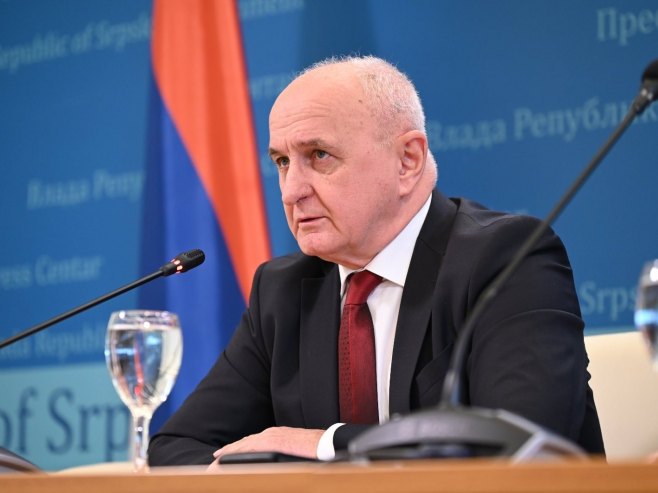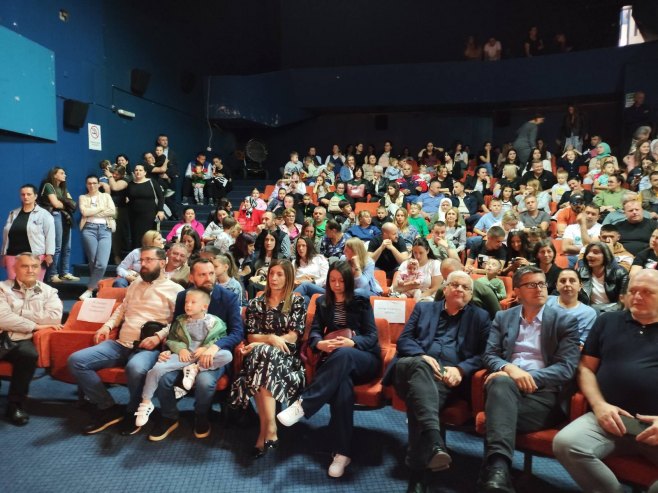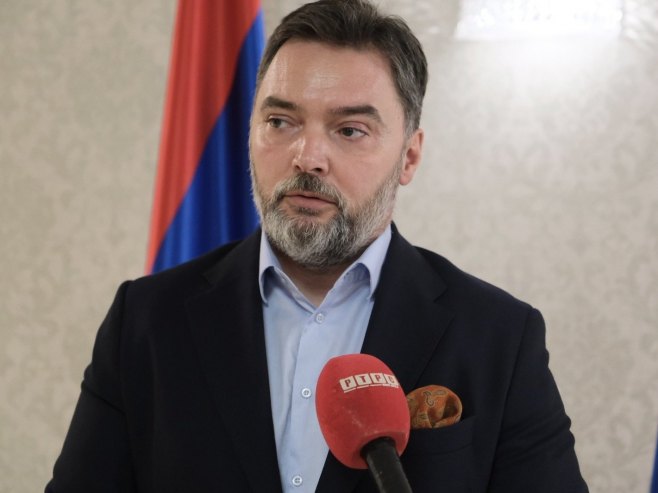The Government of the Republika Srpska adopted today the Information on securing financial resources for equipping the student accommodation facility in the Lukavica Student Center. The 61st session of the Government of the Republika Srpska was held. The Government instructed the Ministry of Finance and the Ministry of Scientific and Technological Development and Higher Education to secure financial resources in the amount of 1,700,000.00 KM with VAT for the implementation of the third phase of the project – Equipping the student accommodation facility in the Lukavica Student Center.
The Government of the Republika Srpska adopted the Action Plan for the harmonization of regulations and other general acts of the Republika Srpska with the regulations of the European Union for 2024.
With the aim of fulfilling the obligation of harmonizing legislation, the Government of the Republika Srpska, at the proposal of the Ministry of European Integration and International Cooperation, adopts annual plans for the harmonization of the Republic’s regulations with the regulations of the European Union.
The Ministry, in cooperation with the republican administrative bodies, prepared the Proposal of the Action Plan for the harmonization of regulations and other general acts of the Republika Srpska with the EU regulations, for the year 2024. This is the fifteenth consecutive annual harmonization plan.
The Action Plan for 2024 contains plans for the harmonization of regulations and other general acts with binding secondary sources of EU law. The harmonization of legislation was planned by 12 ministries and two republican administrations.
The normative activities proposed by the action plan are based on the priorities from the Stabilization and Association Agreement, recommendations from the sub-committee meetings operating within the Stabilization and Association Committee between the EU and BiH, recommendations from the Report on BiH, and recommendations from the European Commission’s Opinion on BiH’s membership application in the EU and the accompanying Analytical Report.
An Annex to the action plan also provided the Report on the implementation of the Action Plan for the harmonization of regulations and other general acts of the Republika Srpska with the EU regulations, for 2023.
The Ministry of Family, Youth, and Sports awarded scholarships to promising athletes, athletes with disabilities, and potential Olympic candidates, allocating 131,000.00 KM for this purpose. Scholarships were awarded to 61 athletes, including 43 scholarships for promising athletes, nine for athletes with disabilities, and nine for potential Olympic candidates. Scholarships for promising athletes and athletes with disabilities amount to 2,000.00 KM annually, and for potential Olympic candidates 3,000.00 KM.
The primary goal of awarding scholarships is to evaluate the sports results achieved in the previous two years (an indicator of continuity in achieving sports results) and to encourage further advancement and improvement in sports. When it comes to the effects of this method of financing athletes, the results undoubtedly demonstrate the justification for awarding scholarships, reflected in the continuation of sports activities, continuous training, and the strive to achieve even better sports results.
The Government of the Republika Srpska adopted a Conclusion on accepting the Annual Report on the implementation of the Industrial Development Strategy of the Republika Srpska in 2023. The Ministry of Economy and Entrepreneurship is responsible for monitoring the implementation of the Industrial Development Strategy of the Republika Srpska for the period 2021-2027 and annually informs the Government about the progress made. The Annual Report on the implementation of the Strategy in 2023 was prepared in cooperation with representatives of 22 competent ministries and institutions of the Republika Srpska.
Regarding the progress made in achieving strategic goals and priorities, in accordance with the set result indicators, it is evident that despite numerous measures taken by the institutions of the Republika Srpska to support the manufacturing industry, the planned macroeconomic indicators were not achieved, due to the impact of negative global influences (inflation, market closures, and recession in certain European Union countries, fierce market competition, etc.)
When it comes to the implementation of the Action Plan for the implementation of the Strategy, significant financial resources were allocated to support the development and enhance the competitiveness of the manufacturing industry on a non-repayable and credit basis, including:
- Incentives for direct investments of economic entities in the amount of 13.2 million KM,
- Incentives for the purchase of technological equipment for the food industry in the amount of 9.2 million KM,
- Support for enhancing economic activities and improving the business operations of companies in the amount of 1.9 million KM,
- Incentives for increasing workers’ salaries in the amount of about 16.5 million KM,
- Credit resources of the Investment-Development Bank in the amount of about 12.6 million KM,
- Guarantees of the Guarantee Fund in the amount of about 10.3 million KM.
Also, the normative-legal framework for improving the business environment, attracting investments, and enhancing the quality infrastructure system for the industry’s needs was enhanced, and several laws were passed, including the Law on Amendments and Supplements to the Law on Business Companies, the Law on the Production of Weapons and Military Equipment, the Law on Standardization, the Law on Supplements to the Income Tax Law, the Law on Contributions, the Law on Amendment to the Law on Debt Write-off, the Regulation on the procedure for awarding incentives for direct investments of special importance, etc.
Regarding the planned and realized financial resources for the implementation of the Strategy, a total of 71,710,741.70 KM was spent for the needs of implementing the Strategy, which is 66% of the total planned available amount of financial resources that amounted to 108,735,000.00 KM.
Recommendations for the next period are for the competent ministries and institutions to continue the implementation of the Action Plan for the implementation of the Strategy, especially to work on:
- providing more significant support for raising the technological level, developing new products, innovations, digitalization, transitioning to green and circular economy, and improving the quality system in the industry;
- addressing the issue of the outflow of highly skilled labor abroad and securing the lacking workforce required by the labor market;
- securing missing result indicators, to fully monitor the progress in the implementation of all strategic goals and priorities.









